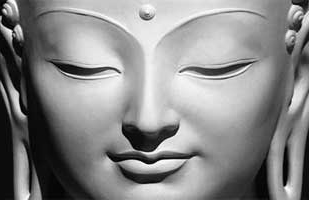
Chapter I - YAMAKA VAGGA - The Twin Verses

EVIL BEGETS EVIL
Mano pubbangama dhamma mano settha manomaya
Manasa ce padutthena bhasati va karoti va
Tato nam dukkhamanveti cakkam'va vahato padam.
Mind is the forerunner of (all evil) states. Mind is chief; mind made are they. If one speaks or acts with wicked mind, because of that, suffering follows one, even as the wheel follows the hoof of the draught-ox.
I: 01 An Arahant who had lost his eyesight (Cakkhupala)
One day, Venerable Cakkhupala who was blind came to pay homage to the Buddha at the Jetavana monastery. While he was pacing up and down in meditation, he accidentally stepped on some insects. In the morning, some bhikkhus visiting him found the dead insects. They thought ill of him and reported the matter to the Buddha. When questioned by the Buddha whether they had seen Cakkhupala killing the insects, they answered in the negative. The Buddha then admonished them, 'Just as you had not seen him killing, so also he had not seen those living insects. Besides, being an Arahant he had no intention of killing, and was not guilty of committing an unwholesome act. 'On being asked why Cakkhupala was blind, the Buddha revealed the following story to explain the nature of kammic effects.
Cakkhupala had been a physician in one of his past existences. Once, he had deliberately made a woman patient blind. That woman had promised to become his servant together with her children if her eyes were completely cured. Fearing that she and her children would have to become servants, she lied to the physician. She told him that her eyes were getting worse when, in fact, they were perfectly cured. The physician knew she was deceiving him, so in revenge, he gave her another ointment which made her totally blind. As a result of this evil deed the physician lost his eyesight many times in his later existences.
The Buddha then commented that an evil deed committed will follow the evildoer just like a wheel follows the hoof of the ox that bears the yoke.
Notes:
Dhamma is a term of many meanings. Here it is used in the sense of Kamma or Karma which denotes volition (cetana) and the other accompanying mental states found in any particular moral or immoral type of consciousness. In this verse the term Dhamma refers to evil mental states (cetasikas). Without a mind or consciousness no such mental states arise. Hence mind is the forerunner of all good and bad mental states. Cetana or volition is the most important of all mental states. It is this volition that constitutes Kamma, for the Buddha says - 'I declare that cetana (volition) is Kamma'.
Mind precedes all actions and serves as the principal element both in performing and in assessing deeds. It is mind that rules and shapes action. Words and deeds are also produced by mind.
In this pair of parallel verses the Buddha emphasizes the great part the mind plays in man's life, and then explains how deeds become good or evil according to the pure and impure state of the mind. Lastly, He speaks of the inevitable consequences of such deeds, giving two homely illustrations.
'Things are forerun by mind' -- Mrs. Rhys Davis.
'(The mental) natures are the result of what we have thought' -- Radhakrishnan.
'All that we are is the result of what we have thought' -- Irving Babbit.

Editor for Buddha brothers: Matthew Laird Acred
If you should encounter any bugs broken links, or display errors just email us.
Buddha brothers has been running since Aug 2010 and can continue to run with your kind help!
If you love our website please donate so we can make this site even better !!